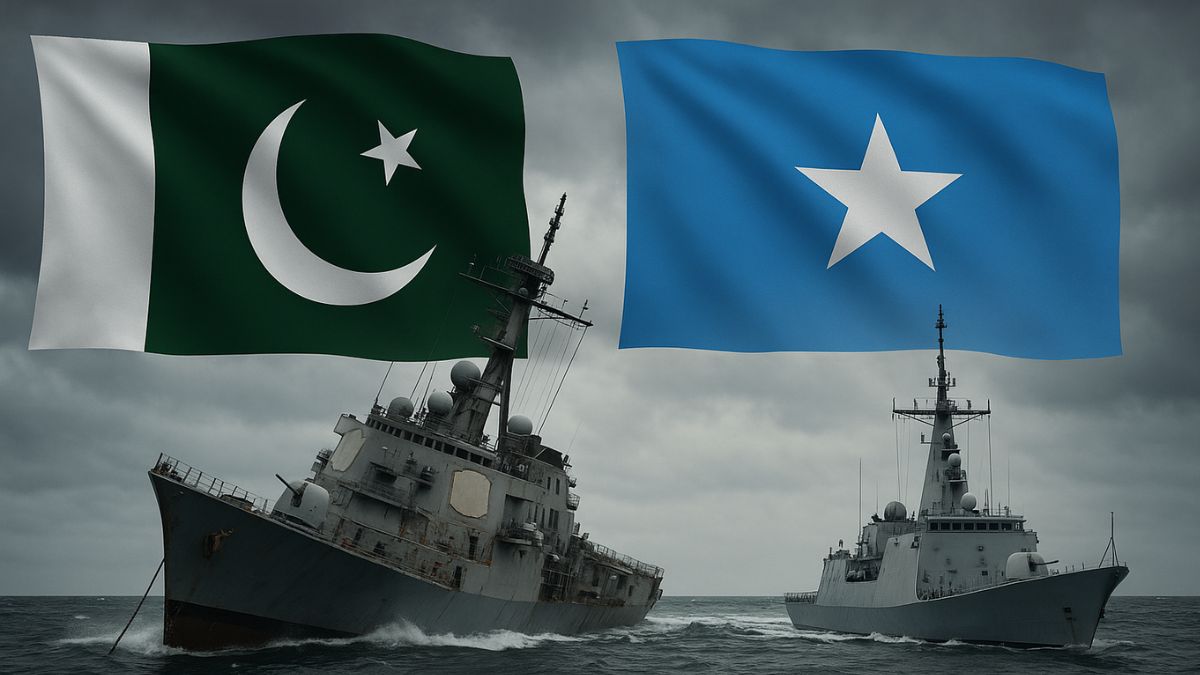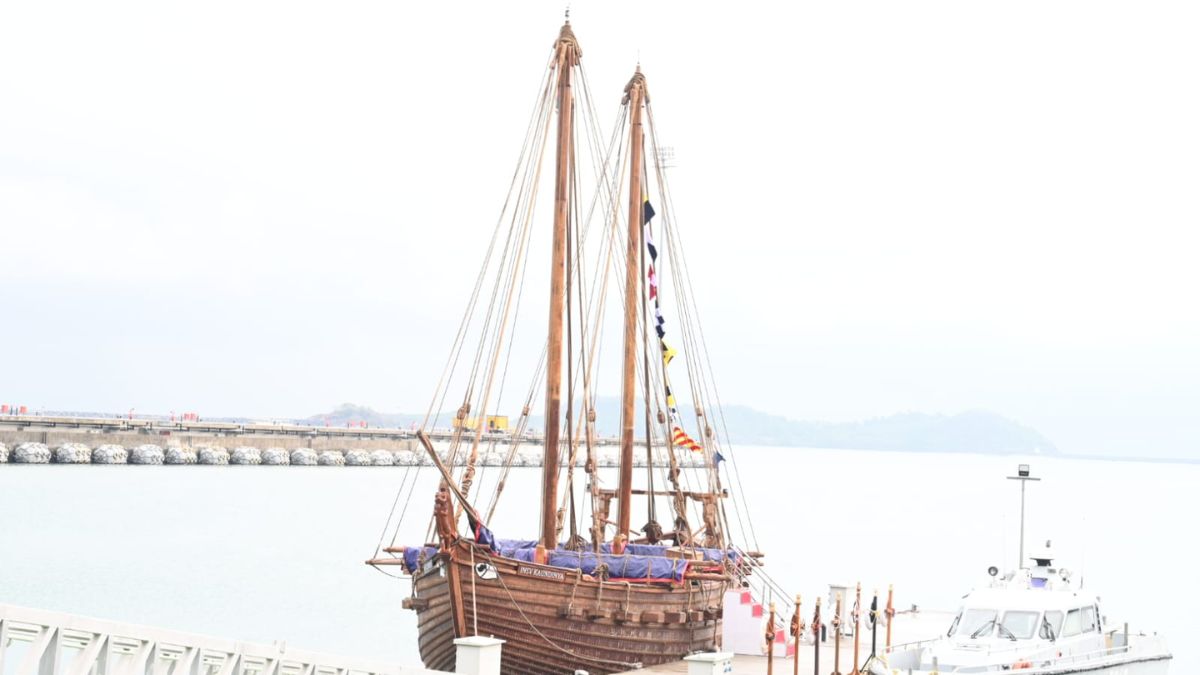Own Navy A Sinking Ship, Pakistan Makes Somalia Hollow Partnership Offer

Somalia looks to Pakistan for naval help, but can a struggling fleet really anchor security in the Horn of Africa? Image courtesy: AI generated picture via DALL-E
Somalia’s defence partnership with Pakistan, announced through a memorandum of understanding on August 26, has raised questions about whether Islamabad has the capacity to deliver on its promises.
The agreement includes training for Somali naval personnel and potential support for capacity-building, but Pakistan’s own navy is grappling with structural flaws that weaken its credibility as a security provider.
For Somalia, the Horn of Africa’s strategic geography makes maritime security an urgent priority. But for donors and partners, the challenge lies in ensuring that any external commitments translate into sustained capacity rather than symbolic gestures.
Pakistan’s track record suggests that the MoU is as much about diplomatic theatre as it is about practical capability.
What does Pakistan’s naval offer really provide?
Pakistan has previously contributed to counter-piracy efforts off the Horn of Africa and has experience in multinational operations such as the US-led CTF-151.
The agreement with Somalia reflects Islamabad’s ambition to project itself as a security exporter in the Muslim world, with training offers at its naval colleges and scope for trilateral cooperation with Turkey.
Yet such diplomatic signalling does not substitute for real sustainment. Effective capacity-building for Somalia would require reliable platforms, maintenance support and local industrial partnerships. Episodic training without logistical backing risks leaving Somali sailors dependent on intermittent foreign help.
How strong is Pakistan’s own naval capacity?
Despite its ambitions, Pakistan’s navy continues to face persistent problems. It depends heavily on China and Turkey for procurement and maintenance, leaving ships vulnerable to delays and shortages of spare parts.
Programmes such as the Hangor-class submarines and Turkish-built corvettes have already slipped on timelines, exposing the fragility of Pakistan’s shipbuilding base.
Warships spend disproportionate time in dockyards due to radar and sonar failures, while crews struggle to gain sea-going experience. These limitations suggest a navy still trying to maintain its own readiness, making its capacity to export naval expertise doubtful.
Is this defence diplomacy or genuine support?
For Somalia, the MoU provides an additional partner in a crowded field that includes Turkey, Qatar and Western donors. For Pakistan, it serves as low-cost diplomacy to bolster its image abroad.
But without concrete guarantees of long-term maintenance, industrial transfer and operational transparency, the agreement risks being little more than a piece of paper.
Somalia’s maritime security needs are urgent and real. For them to be credibly addressed, external partners must provide more than symbolic partnerships. For now, Pakistan’s naval offer remains a promise weighed down by its own operational and industrial shortcomings.







